Gaming
The latest Gaming breaking news, comment, reviews and features from the experts at T3
Explore Gaming
-

Forget EA Sports FC, FIFA is back – and from an unlikely source
There will be a new FIFA game next year – planned for the World Cup in June
By Rik Henderson Published
-

Know a PS5 fanatic? Get them one of these gifts and level up your friendship
The PS5 is nothing without these extras
By Max Freeman-Mills Published
-

Xbox just made one of its best accessories even better – and that's great news for PC gamers too
The official Xbox Wireless Headset gets a major feature update
By Rik Henderson Published
-

3 of the best Christmas-themed video games on PlayStation, Xbox and PC
‘Tis the season to be gaming – and here are three festive favourites to enjoy
By Matt Tate Published
-

A new PlayStation is coming this week – I want one more than anything
PlayStation is 30 and there are only 300 of this PlayStation Anicorn watch
By Mike Lowe Published
-

Got a Switch 2 or know someone with one? These accessories would make great Christmas gifts
A good accessory can change everything
By Max Freeman-Mills Published
-

I've used countless pro controllers – these are the 3 I'd gift this Christmas
Level up someone's gaming this way
By Max Freeman-Mills Published
-

These are the three gaming headsets I recommend this Christmas – ideal for gifts
These are the best of the best
By Max Freeman-Mills Published
-

New Secretlab gaming chair celebrates the work of a world champion
The Secretlab McLaren MonoCell Edition is an incredibly limited edition chair
By Sam Cross Published
-

A high-end F1 sim racing seat that doesn't take up a whole room? This could be huge
Playseat's latest changes a lot
By Max Freeman-Mills Published
-

Forget Xbox Game Pass Ultimate – these free Xbox games don't need it
A whole stack of free games are coming to Xbox Game Pass Premium in December
By Rik Henderson Last updated
-
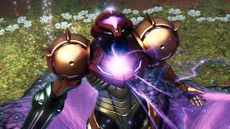
I've finished this winter's biggest Switch 2 game before release – and it lived up to expectations
Metroid Prime 4 is great fun, with caveats
By Max Freeman-Mills Published
-
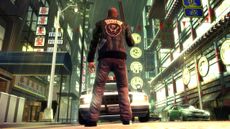
3 of the best Xbox 360 games that really need remasters
How have these three games not been given a modern-day makeover yet?
By Matt Tate Published
-

This is the future of gaming – plus 8 hi-tech consoles you can buy right now
As the PS5 and Xbox Series get older, what will the next generation of games consoles be like?
By Ian Evenden Published
-

Best Cyber Monday retro gaming deals LIVE – last-minute deals on handhelds, consoles, arcade machines and more
We're coming to the end of the biggest sales period of the year, but there are still some great retro gaming deals to be had
By Rik Henderson Last updated
-

I was struggling to download games for my Switch 2 until I chanced upon this secret deal
Forget the Cyber Monday madness, this hidden deal just saved my Switch 2
By Rik Henderson Published
-

Amazon is selling The Last of Us 2 on PS5 for just $29.99 during its Cyber Monday sale
Only £21.49 for those in the UK
By Mike Lowe Published
-
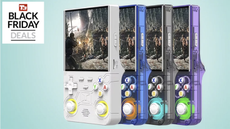
I already own 20+ retro gaming handhelds, but here's a last-minute Cyber Monday deal for under £20 even I can't resist
Cyber Monday madness hits the retro gaming scene – handheld and 1,000s of games for just £16
By Rik Henderson Published
-

This surprise game is finally pitting my PS5 Pro against my Switch 2
The winner might not surprise you
By Max Freeman-Mills Published
-

Nintendo's Switch 2 just levelled up – "The Yoshi keyring sells it"
Who wouldn't want a Nintendo keyring?
By Mike Lowe Published
-

3 best Apple Arcade games worth the subscription alone
Looking for something to play on your iPhone or iPad? Here are three stunners with no in-app purchases
By Matt Tate Published
-

Last chance: I review gaming headsets for work, and the one I recommend to most people is now cheaper than ever
SteelSeries' headset is a total banger
By Max Freeman-Mills Last updated
-
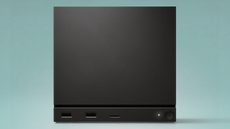
Steam Machine pricing could make PS5 Pro owners nervous
Experts point at PS5 Pro levels when it comes to the cost of the new Steam Machine
By Rik Henderson Published
-

I've been reviewing games for 37 years and this is the only PS5 controller I use – now £50 off
I've tested many PS5 controllers, but this comes out top every time
By Rik Henderson Published
-

Better than Steam Deck – this is the 5-star gaming handheld I bought in the Cyber Monday deals myself
After months of going back and forth, this deal made my purchase decision remarkably easy
By Rik Henderson Published
-
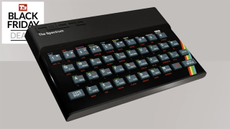
Amazon's amazing Spectrum deal might be sold out, but I've just found it in stock elsewhere – at an equally incredible price
The full size recreation of the ZX Spectrum has been so popular for Black Friday it's sold out – but not everywhere
By Rik Henderson Published
-

This is the 'Xbox Mini' I need in my life – it's far cheaper than a Series X
Currys has the Xbox-style mini-fridge on offer, at just £39.99
By Mike Lowe Last updated
-
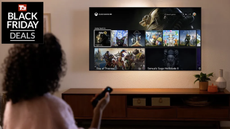
"This is an Xbox" for just £72.99 – 100s of Xbox games at no extra cost
Get up and playing 100s of Xbox games in minutes, with no console required
By Rik Henderson Published
-

New free PS5 games make the PS Plus Black Friday deal an even bigger bargain – including one that's criminally underrated
PS Plus Premium is 33% off right now – and these new free games give you even more reason to subscribe
By Rik Henderson Published
